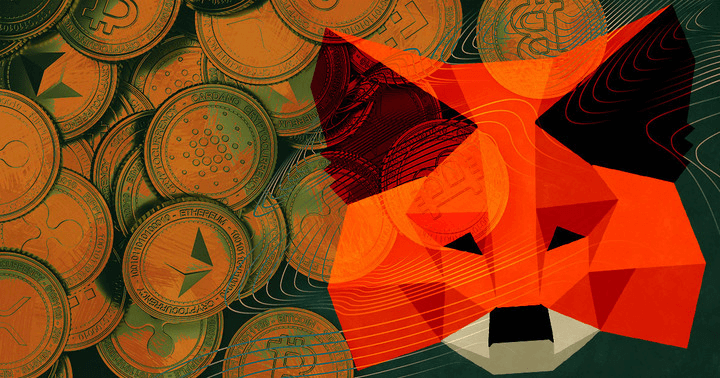 MetaMask co-founders say crypto not ‘future of finance’ yet, criticize CeFi platforms
MetaMask co-founders say crypto not ‘future of finance’ yet, criticize CeFi platforms MetaMask co-founders say crypto not ‘future of finance’ yet, criticize CeFi platforms
The MetaMask co-founders blast Celsius and Voyager as not operating transparently and mislabelling their products as DeFi.

Cover art/illustration via CryptoSlate. Image includes combined content which may include AI-generated content.
MetaMask co-founders Aaron Davis and Dan Finlay shared their views on the downturn and the dangers of going all in on crypto, among other topics, during an interview with Vice.
Davis conceded that buying crypto is like gambling, as he commented on the proliferation of scams, Ponzi schemes, and hacks. With that, he said the current state of cryptocurrency shows it is not “the future of finance” yet and those who support going all in on crypto are encouraging “extremely dangerous behavior.”
Cryptocurrency investors have been humbled by the recent market downturn, driving home the risks of investing in digital assets. Moreso those who fell victim to the shenanigans at particular CeFi platforms.
CeFi is not DeFi
CeFi was sold based on accruing similar gains to DeFi, but with the benefits of being easy to use and having customer support.
However, for Celsius and Voyager users, that illusion of safety came unstuck recently as both firms struggled to cope with the downturn — ultimately filing for bankruptcy and leaving users in limbo.
Commenting on this, Finlay criticized the management teams for not acting under transparency, a primary tent of cryptocurrency, according to Finlay.
He added that many of these platforms were calling themselves DeFi but were, in fact, “operating as shadow banks,” employing high-risk strategies with users’ funds. That, Finlay said, is not operating transparently.
“A lot of the collapses that happened during this last round were things that were branding themselves as DeFi but then were actually kind of operating as shadow banks with massive leverage.”
How is MetaMask countering the bad actors?
As for making crypto safer, Finlay said MetaMask is limited in what it can do to stop the bad actors— adding that he is powerless to prevent people from making blockchain Ponzi schemes.
Because crypto wallets, such as MetaMask, are designed to connect to various protocols, Finlay said it’s a misconception that he can police the entire space and banish the scammers.
“It’s by definition impossible for us to wrap the whole thing into one unified bow and enforce it in a direction.“
That’s not to say the company isn’t taking action. The pair talked about making the wallet experience more “consensual,” and “harder for unreputable things to gain credibility.” However, other than not autodetecting (and displaying) airdropped tokens, the co-founders did not expand on the practical aspects of that.
A common airdropped token scam is generating interest with a significant USD value of airdropped tokens. Once the user realizes they cannot liquidate the “free tokens,” they are directed to a phishing site that attempts to persuade the user to input their recovery phrase under the guise of cashing in the tokens.





































































































